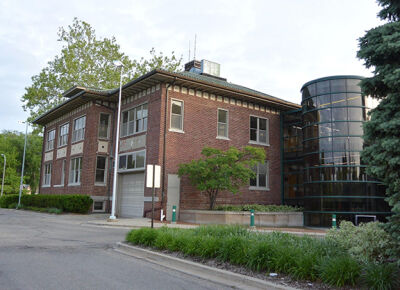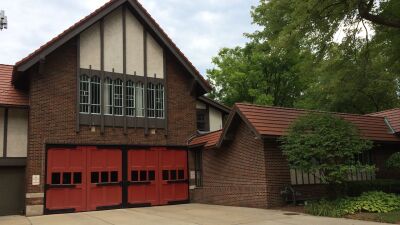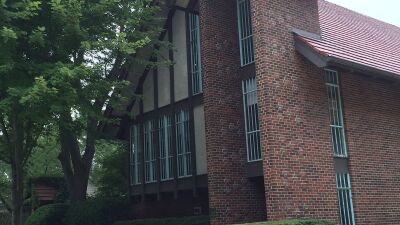GROSSE POINTE PARK — Along with selecting state, federal and county officials, Grosse Pointe Park voters are faced with another important decision on the Nov. 8 ballot.
Residents are being asked to decide whether or not to approve a new 2.5-mill, 10-year levy for water and sewer infrastructure repairs and improvements. If approved, the millage would take effect in December 2022 and raise $1,758,292 in its first year, which could be used to pay for work on pump stations, water and sewer mains, lead service lines, sewer resilience and drainage, water and sewer equipment, and other related expenditures.
“As we are all aware, the scope of this (work) is tremendous,” City Councilman Max Wiener said.
For a resident with a home worth $300,000 and having a taxable value of $150,000, the millage would cost an additional $375 per year, or $31.25 more per month.
City Manager Nick Sizeland said the city opted to “give the people the chance to decide how we fund water/sewer (projects).”
Sizeland said the 1998 sewer separation project was paid for via a special assessment. The last payment for that project was in 2018, he said. Between Headlee rollbacks and the sewer separation millage coming off the tax rolls, officials said the Park tax rate is about 1.9 mills lower than it was in 2018.
One of the improvements the city would like to make is to replace its existing water mains with new ones made of PVC, which Sizeland said has a lifespan of more than 100 years. The current water mains are made of cast iron and are more than 80 years old, and he said most are past their typical life expectancy. Because of their age, Park officials say the city has spent more than $1 million over the last decade fixing water main breaks — a problem that’s expected to worsen as the pipes continue to age and deteriorate. In addition, Sizeland said the city has lost 46 million gallons of water over the last 20 years due to water main breaks, at a cost of roughly $64,000 annually.
Saving that water “is going to make a huge environmental impact, as well,” Wiener said.
Water main breaks are also an inconvenience for residents, who often experience a temporary loss of water service while mains are being fixed.
“We’ve had situations where (residents) have been out of service for hours,” Public Works Supervisor Tom Jenny said.
Officials say the millage would enable them to undertake an annual water main replacement program, as well as sewer lining, separation of sewers in alleys, improvements at the sewer pumping stations and other projects.
The state has mandated that all communities replace their lead service lines by 2041, and Sizeland said the Park has about 2,025 lead service lines. He said this project alone is expected to cost approximately $15 million at today’s prices.
“These costs are going to keep rising,” Sizeland said.
City officials say increasing water and sewer rates doesn’t seem like the right answer.
“Water (and) sewer rates would have to rise significantly in order to cover the costs of the projects,” Sizeland said.
Wiener called a millage the “most efficient way” to finance these projects.
But not all officials favored the millage proposal. In July, City Councilwoman Christine Gallagher voiced a number of reservations, saying that the city hadn’t done adequate due diligence in advance of the millage and didn’t know the full scope or cost of the work needed. She felt the city should wait until its engineers and other professional consultants had completed their assessments of the infrastructure before asking residents for this funding.
Likewise, City Councilman Vikas Relan expressed concerns about the proposal and said he wished the city “had a list of priorities before asking for the money.”
“I’m wondering how we got here,” Relan said. “Why is our system in such disarray?”
Gallagher and Relan both said they were worried about what they felt was the rush to obtain a millage, but City Attorney Thomas “Jake” Howlett said they needed the council to vote on ballot language this summer in order to get the proposal on the November ballot. Administrators said they’re hoping to get the millage approved so they have the funds available to start work as soon as possible.
Sizeland said that, when the report from Pipetek Infrastructure Services becomes available, the city will have a list of the most critical areas to address, but he added that they need to “be a little guarded” because of a pending lawsuit. Some residents are part of a suit against the city and other governmental agencies over widespread flooding and basement backups in the summer of 2021, after heavy rains struck the area.
“I haven’t forgotten the piles of devastation,” said Mayor Michele Hodges, referring to towering heaps of ruined possessions and building materials hauled out of flooded basements in the summer of 2021. “There’s an urgency to this. … If we don’t move quickly, we’re going to lose precious time.”
Hodges said the work needs to be done, so if it isn’t paid for with a millage, it would have to be paid for by some other means.
“We’ve been talking about this for some time,” Wiener said. “Our hands are somewhat tied” in sharing some information because of the lawsuit, but “we are aware of the scope of the work we need to do.”
Wiener said they want to come up with an annual list of water and sewer projects they plan to tackle.
“We’ve been structuring a plan as best we can,” Wiener said. “The goal now is to move into a proactive phase to address the issues we all know we have.”
Resident opinions on the millage question are mixed, with some saying the millage is too costly — especially at a time when people are coping with higher inflation and costs for everything from gas to groceries — while others believe this is a good way to address some of the city’s infrastructure needs.
During a meeting July 18, the City Council voted 5-1 in favor of language to put the 2.5-mill question on the Nov. 8 ballot. Gallagher cast the vote against it. City Councilman Thomas Caulfield wasn’t present for the July 18 meeting.
“This is so targeted — it’s great,” City Councilman Martin McMillan said of the millage language. “Everybody doesn’t want their basements to flood again.”
If the millage is approved, Sizeland said work would start in spring 2023. Residents would first see the millage on their winter tax bills, which go out in December.
Grosse Pointe Park has posted information about the millage request on its website, www.grossepointepark.org.
 Publication select ▼
Publication select ▼

























